We all know the frustrations of carefully creating content only for those pages to never receive any views and leave you feeling like you’re screaming into the void. An alarming 90.63% of webpages get no traffic from Google, according to a study by Ahrefs. So how can your brand land in the 9.37% that gets boosted by Google? The answer - by conducting keyword research.
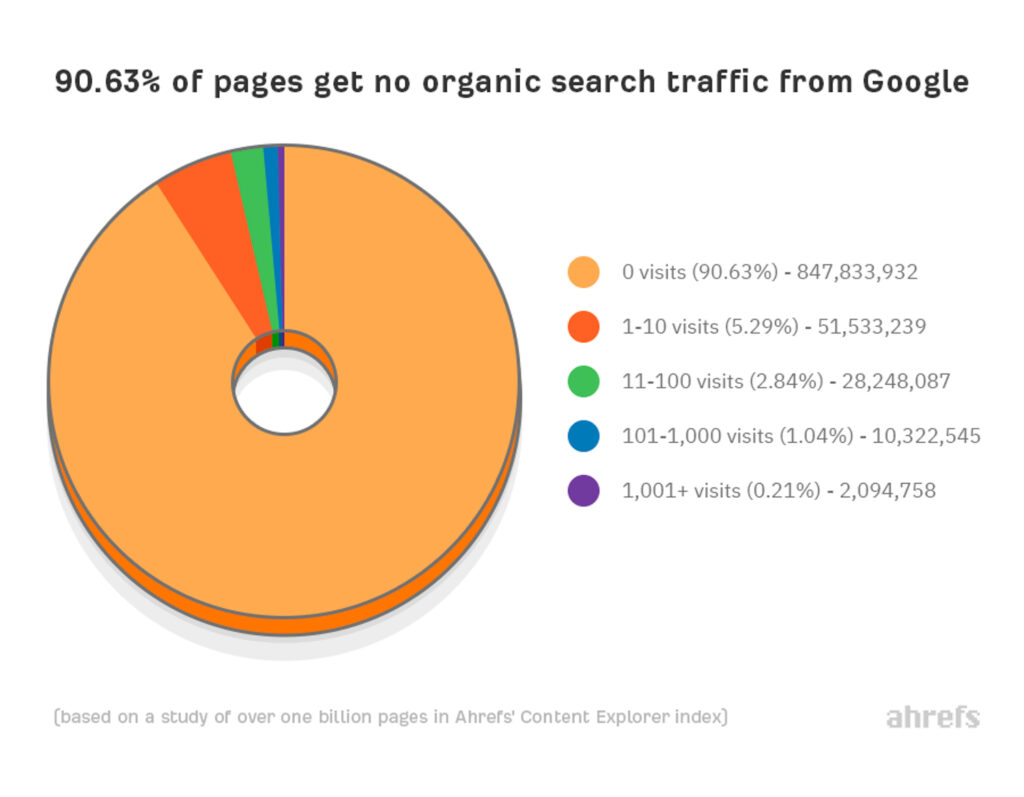
Keywords are collections of commonly used phrases by a target audience when entering a query into a search engine. They reveal insights into a potential customer’s needs and concerns; if you can understand what customers want then it becomes easier to tailor your content strategy to their needs. The result of an effective keyword research should lead to increased levels of organic traffic to your website and hopefully a higher search engine results page listing. When done correctly, keyword research provides your business with insights into current marketing trends and allows your brand to hone into relevant topics.
There are three key steps when it comes to keyword research:
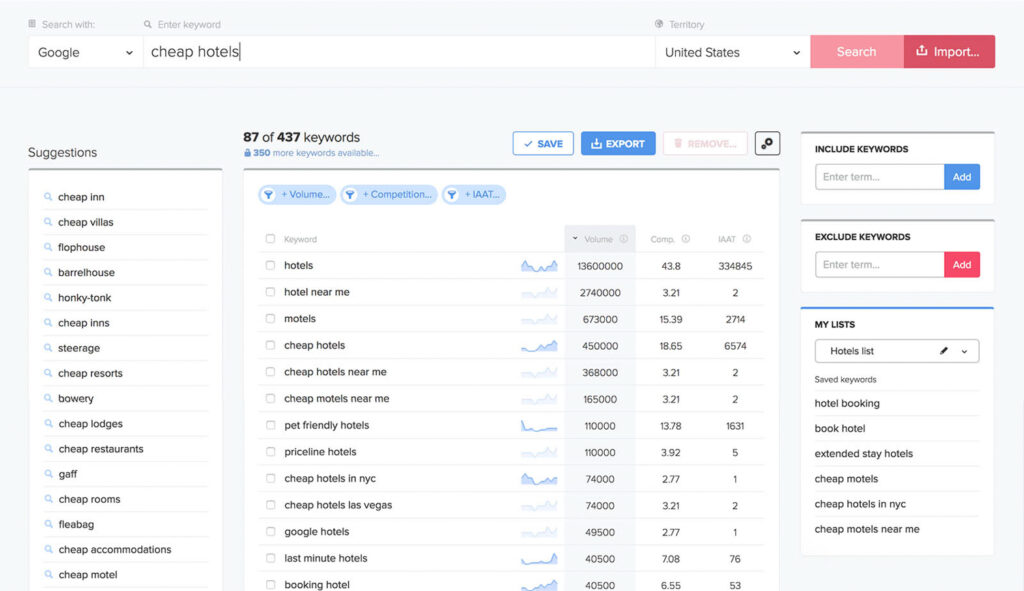
- Finding keywords
The best place to start is with a seed keyword - these are bigger, overarching keywords from your niche that have high monthly search volumes and high competition. Seed keywords can be used in keyword research tools to unlock more keywords and discover other keywords relevant to your business. If your business was a Melbourne-based vegan coffee shop, a seed keyword would be ‘coffee’. The keyword research tool would then spit out other popular keywords and give an idea of the popular topics within your niche.
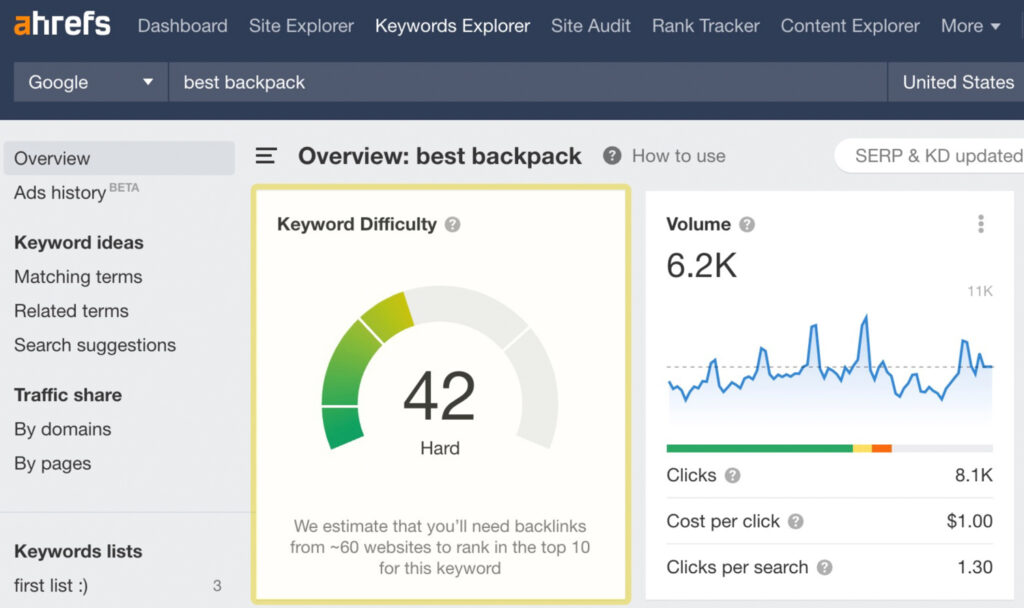
- Analysing keywords
Once you have your keywords you can filter them through two key metrics to see which ones should be prioritised: search volume and keyword difficulty. Search volume reveals how many times that word is entered into Google. The higher the search, the more traffic your website will receive if you manage to rank well. Keyword difficulty helps you estimate how hard it will be to rank organically in the top ten results. This is decided by the authoritativeness of a website. In general, it is easier to rank for long-tail keywords (eg. best coffee shop for vegans) than short-tail keywords and they will have higher conversion rates.
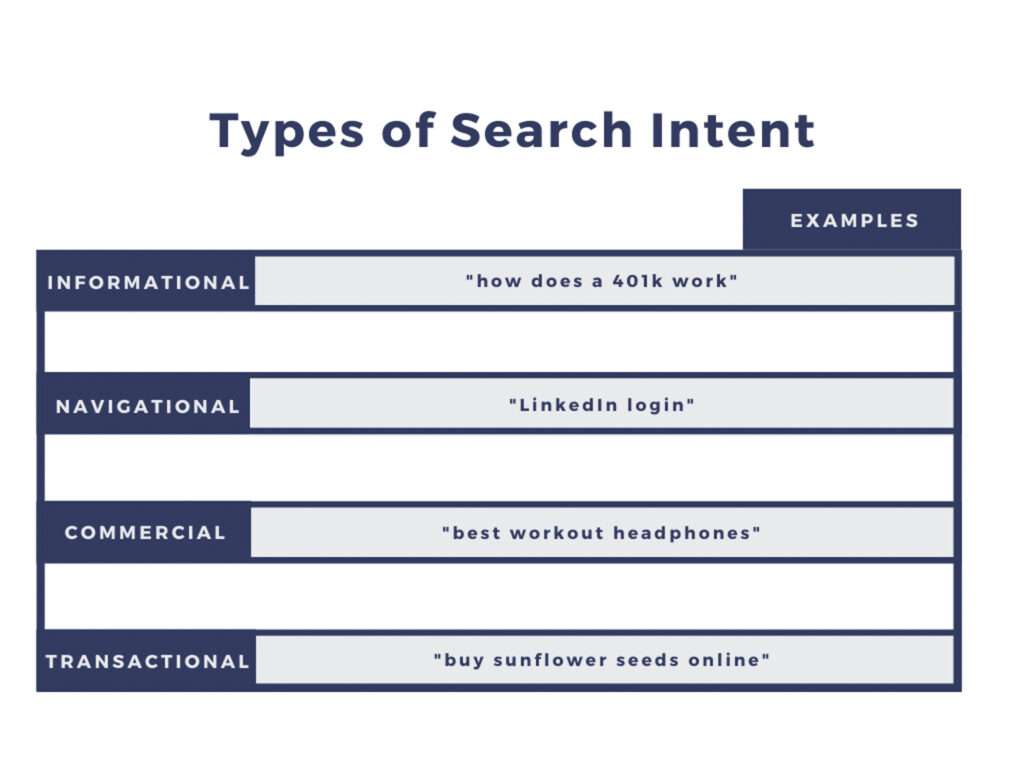
- Targeting keywords
Content should be created around what people want to discover rather than what a business wants to communicate. Central to selecting keywords is customer intent. There are four types of search intent:
- Informational - lots of searches nowadays are done in order to find more knowledge on a certain topic. If people want to know more about how to brew coffee, Google will provide answers to that. But Google’s algorithm is much more sophisticated than just providing an answer to a question - Google will also suggest instructional videos to follow along and advertisements for moka pots and coffee beans.
- Commercial - a purchase decision usually occurs after people research a product and look at reviews. Transactional intent is there, and it is at this stage that people are likely to get swayed as they are yet to be persuaded towards a particular product choice.
- Transactional - if a user wants to buy something, they most likely have a rough idea in mind of what they’re looking for. Ranking could be useful for more general searches like just a “couch” however if the user already has a product in mind then it is less effective.
- Navigational - if a user has a certain website destination in mind, Google will refer them directly to that location.
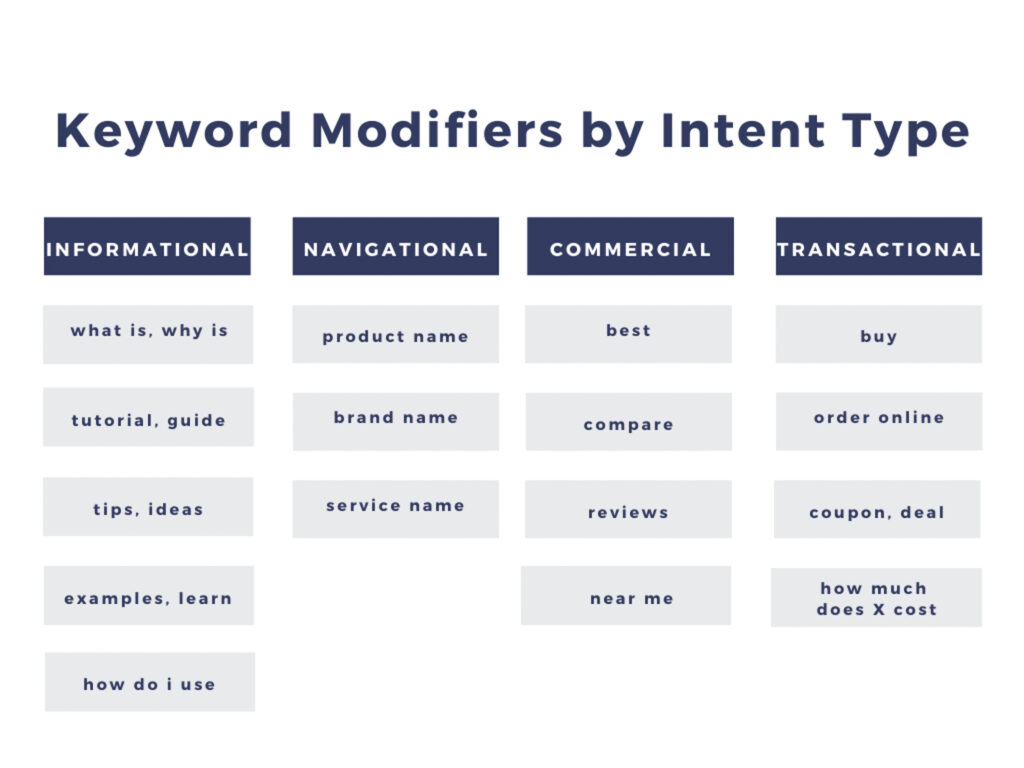
Optimising your website and keywords according to these four intents will allow traffic to be directed to the correct places. If a customer is looking for a product to buy from your page, but lands on a lengthy blog post instead of a product page then you might lose the sale. Matching intent-specific words with correlating pages will make it easier for Google to direct potential customers to the correct places. For example, keywords such as ‘how to’, ‘X product review’, ‘information on’ are most likely informational intent searches, and would best match up with a review or instructional webpage.
Keywords should be reevaluated regularly (every few months) according to the desires and needs of your target audience. Staying up-to-date with new keywords will also reveal new trends and opportunities for business growth. Research should be done before you develop a content strategy as a successful keyword research will lay the foundations for the direction of your content.
